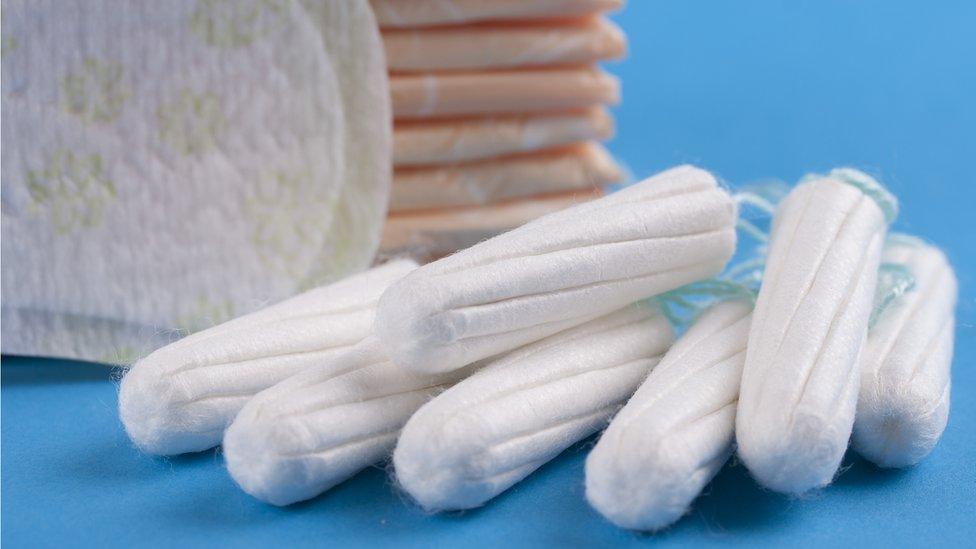Can 'beauty banks' help fight hygiene poverty?
- Published
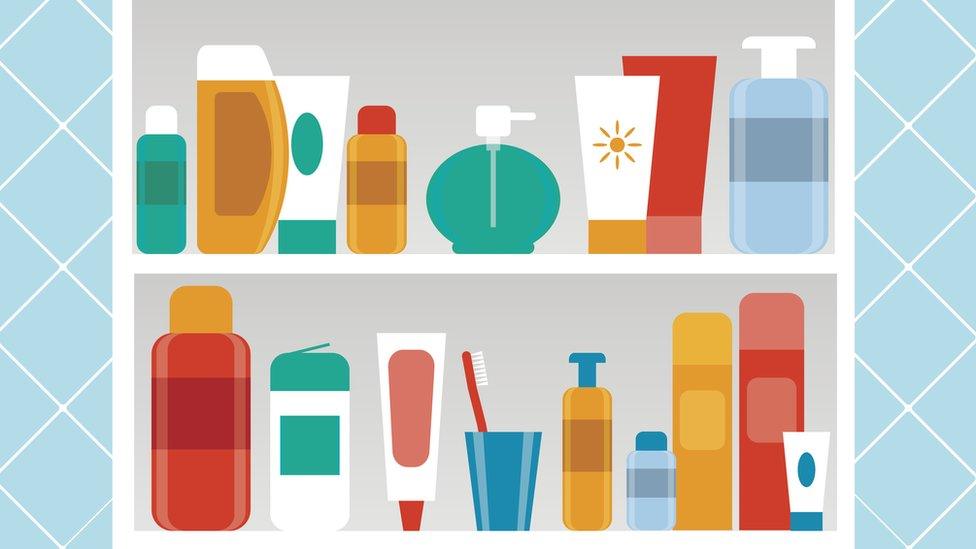
Most of us give barely a thought to the cost of shampoo, soap and sanitary towels when stocking up on everyday essentials in the toiletry aisle. But for those living in poverty - whether on the streets or in homes on a shoestring budget - basic hygiene has become a backseat luxury.
Many thousands of people across the UK rely on a network of food banks for their day-to-day survival.
It's easy to understand that when food is in scarce supply hygiene isn't always the top priority.
But according to research conducted by the Trussell Trust, which has a 428-strong network of food banks nationwide, more than half of people using its services cannot afford toiletries.
"If you don't have enough money to cover the cost of food, it's likely you'll be unable to afford other essentials too," said Samantha Stapley, its head of operations for England.
"No-one should be left struggling to wash their hair, brush their teeth or afford tampons because they've been hit by something unexpected like redundancy, sickness or a delayed benefit payment.
"This is a dignity issue."
When faced with the choice of being able to afford food or face wipes the answer is obvious, says journalist Sali Hughes, who has joined forces with beauty director Jo Jones and the Trussell Trust to launch Beauty Banks.
"Some people don't have enough money to survive, so what's going to go? The thing that you don't need to stay alive.
"But I don't think having clean teeth is a luxury. Having clean hair isn't being spoiled - in 2018, in Britain, it's a right."

Sali Hughes says cleanliness is a right in Britain in 2018
The pair is pooling their collective industry resources by teaming up with brands, retailers and the wider community to gather as many toothbrushes, razors and tampons as possible to help those unable to afford the basics.
The non-profit aims to funnel unwanted toiletries for both men and women to five locations across the UK - a women's refuge and a food bank in Staines in Surrey, a homeless shelter in Cardiff, a food bank in Milton Keynes, and another in Ladbroke Grove, not far from Grenfell Tower.
"People really need these things and not being clean and being dirty is the difference between having a bad or good day, of feeling employable and feeling good about themselves," said Ms Hughes.
"These are things we take for granted. We often don't think twice about buying shower gel, but [for some] that can make the difference between being clean and not being able to eat."
Ms Hughes, who has written in the past about her own experience of homelessness, external, was in part inspired to launch the scheme after taking part in a recent Sleep Out event run by youth homelessness charity Centrepoint.
She and others, including fellow writer Caitlin Moran, spent the night on the street and raised more than £40,000, external.
On Instagram, she described how "brutal" the experience of sleeping rough was - "freezing cold, turfed out and moved on at 6:30am, nowhere to clean my teeth or wash my face".
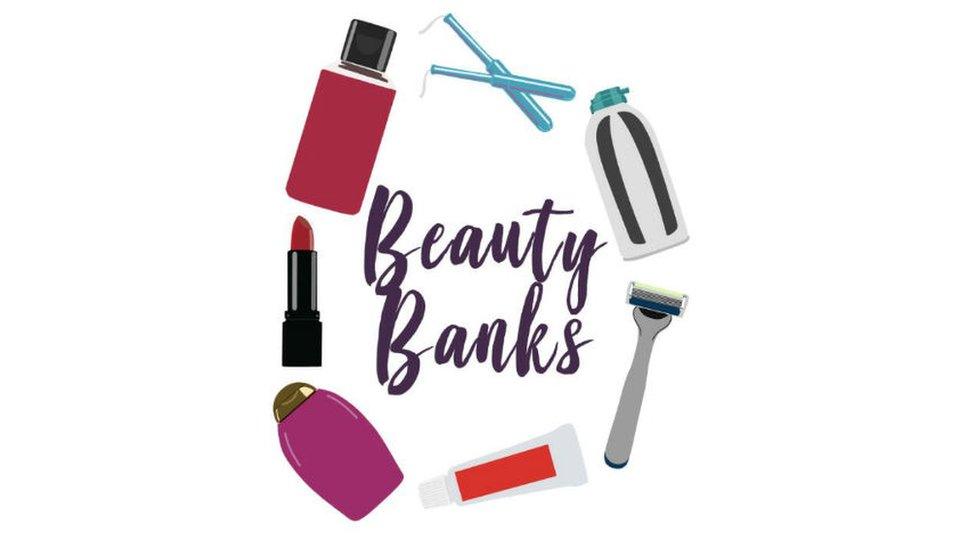
In another, she posted a picture of face wipes and tampons, external, adding: "These are the basics I need for sleeping rough tonight and I am lucky enough to be able to just go out and buy them. People on the streets can't."
According to recent government figures, there were 4,751 people counted or estimated to be bedding down outside in autumn 2017 - a 15% rise on the year before and more than double the figure recorded five years ago.
In July, the In Kind Direct charity also warned of a rise in "hygiene poverty", external - in which families across the UK were reporting a crisis in being unable to afford essential toiletries.
Coupled with increasing reports of period poverty - in which girls across the country are routinely skipping school because they cannot afford sanitary protection - Ms Hughes and Mrs Jones started to talk about how they could help.
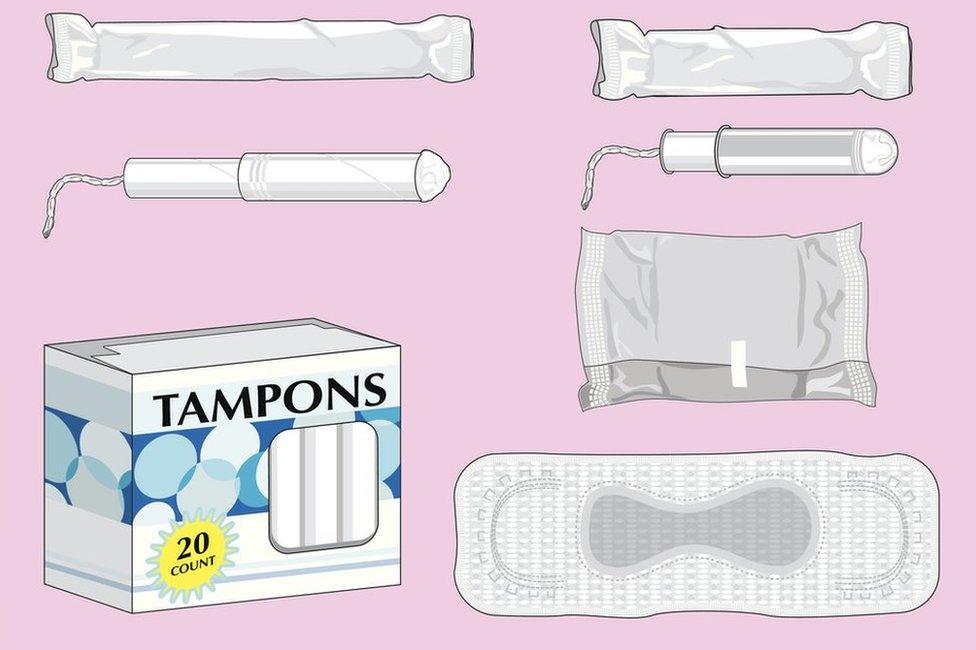
"The thought of not being able to buy something you absolutely need to protect yourself during your period, it's such a stark reality most of us don't consider," said Ms Hughes.
"As women, we know we need tampons, so we chuck them in the trolley in supermarkets and that's the most you think about it. The idea you can't afford to keep clean, it's such a big part of how we feel about ourselves.
"When you feel dirty and your hair's dirty, you're constantly thinking 'do people think I'm grotty, do I smell?' People are living like this. It's monstrous, it's really shocking."
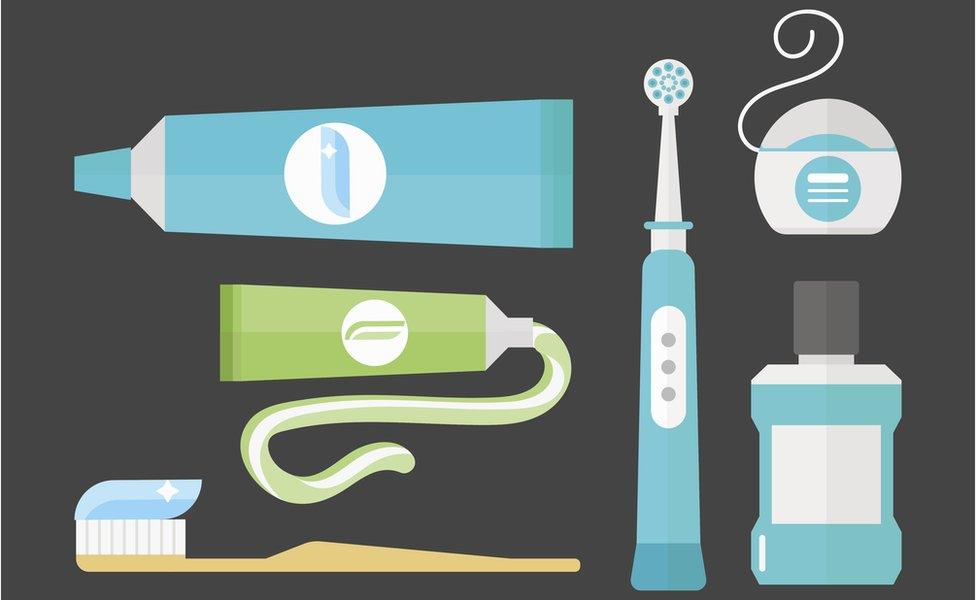
Mrs Jones said she came up with the idea of donating unwanted and surplus toiletries to food banks about six months ago after realising there was a huge demand for non-food items.
She and Ms Hughes had also often talked about how much product was being wasted in the beauty industry.
"We started talking about marrying the gap between the waste in our industry and getting it into the hands of people who really need it.
"Beauty directors and writers get sent products all the time and people in our industry are really kind and generous, but they don't know what to with [surplus goods] or how to channel it to the right places."

You might also be interested in

Mrs Jones said the turning point came when she got the company she works for, Communications Store, involved.
"It's all well and good sending a lot of products to a food bank but that's only part of the solution. Who's going to sort it out and pack it up? So that's when I went to my agency and said, 'can we support this', and my boss said 'yes'.
"Our staff are packing the stuff up and we're covering the cost of sending it out, so that when it arrives [at the food banks], it's already sorted. We want to make it as easy as possible to distribute."
Donations will be parcelled up and sent to each of the five locations supported by the Trust.
Though starting small, Ms Hughes hopes to roll the Beauty Banks project out to further locations and is encouraging people to get involved.
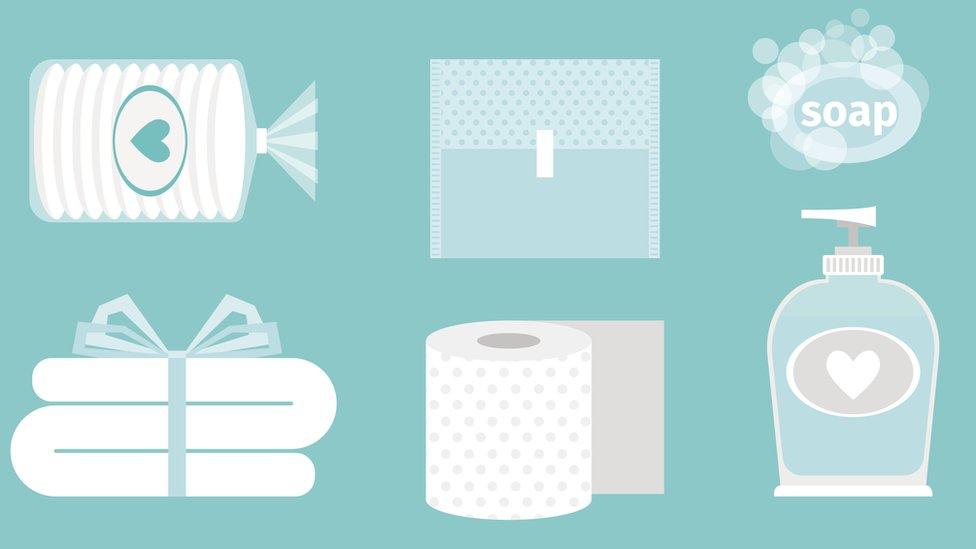
"We don't want people to donate money. But we would love members of the public to send their spare toiletries that they have lying around.
"We're looking for really essential toiletries like deodorant, we want shaving gel, razors, tampons, sanitary towels. We need shampoo, soap, baby wipes, flannels and toothbrushes.
"We would like people to throw a box of tampons in their basket and then throw in another to donate, or to donate the soap their aunts gave them two Christmases ago.
"Provided they're unused - they will find a good home."
- Published25 January 2018
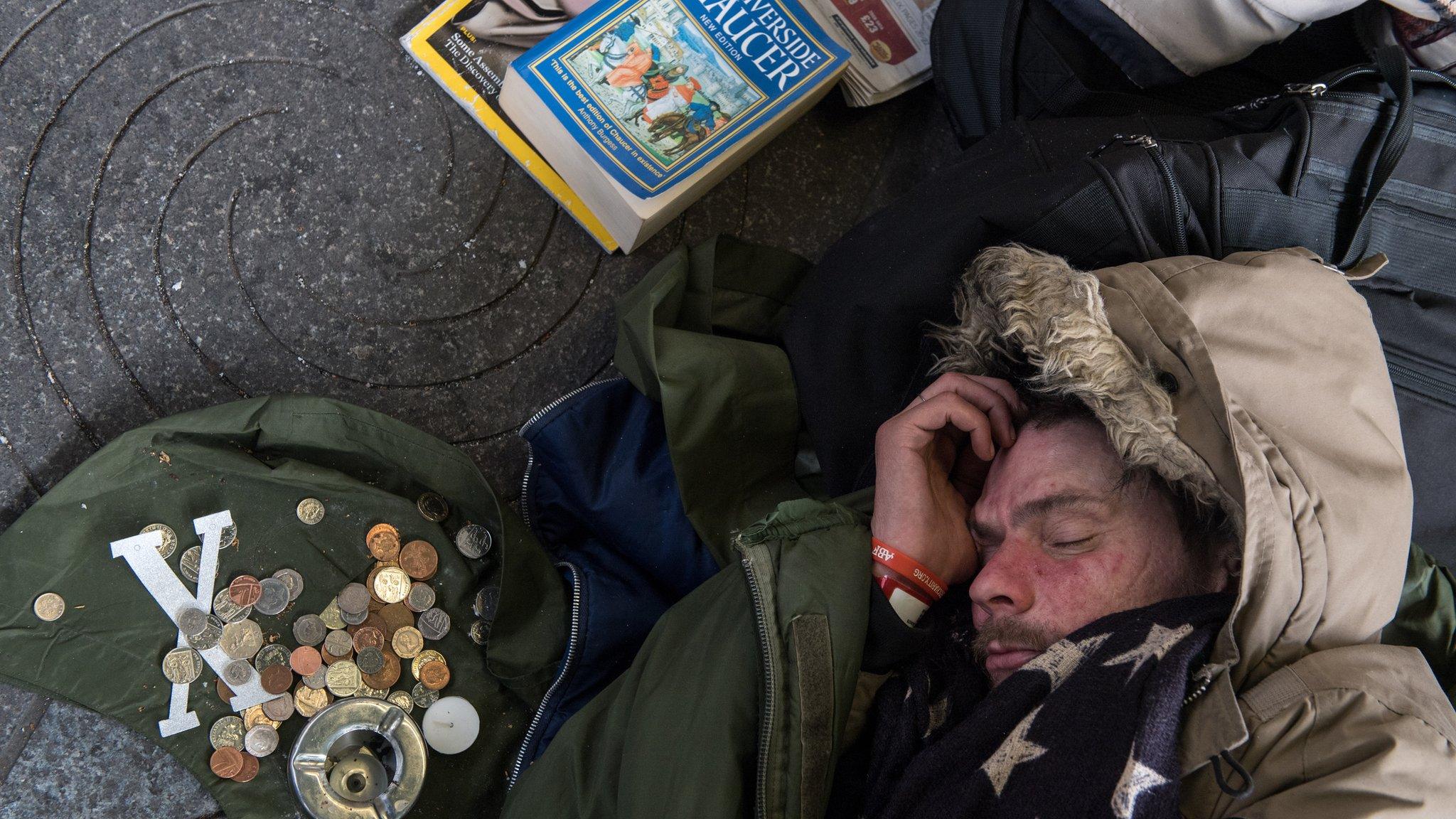
- Published11 December 2017
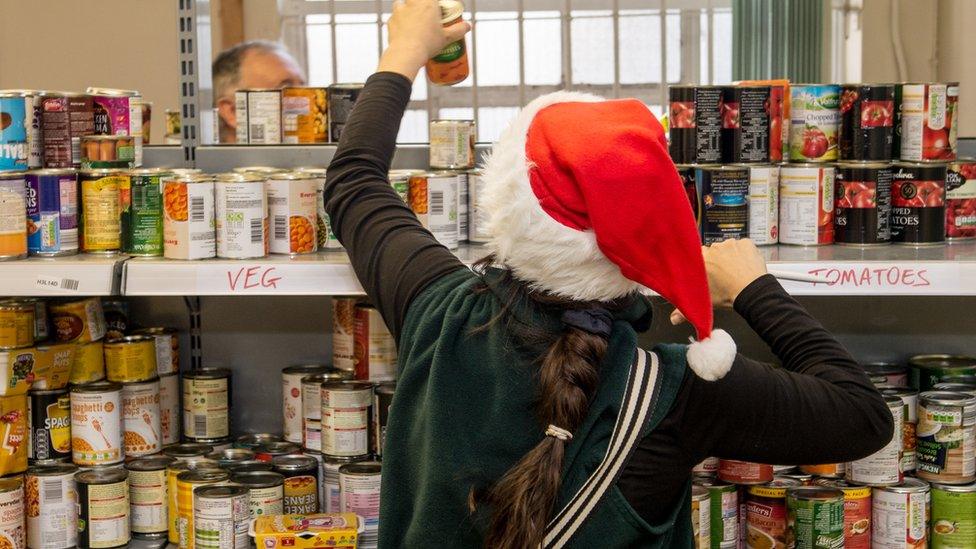
- Published8 December 2017
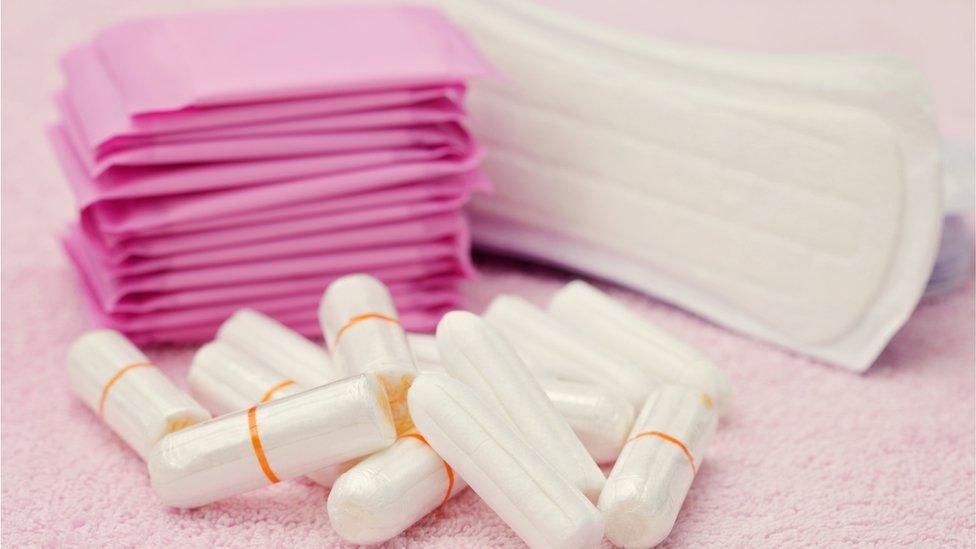
- Published25 November 2017
